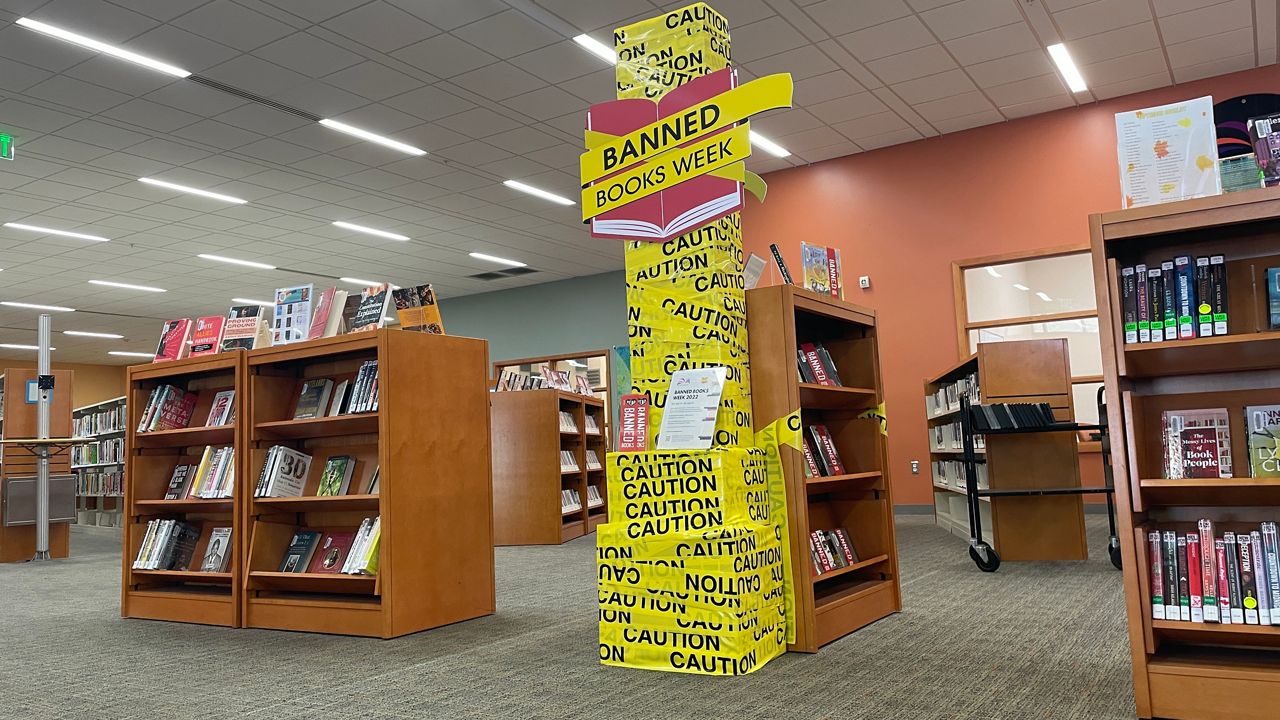ST. LOUIS – The country is poised to see more book challenges in 2022 than the record set in 2021, according to the American Library Association (ALA). It comes as another recently released report by PEN America found over 2,500 instances of individual books being banned, affecting 1,648 unique book titles.
Bans happened in 32 states with Texas, Florida, Pennsylvania and Tennessee having the most incidents according to PEN America, a group working to protect free expression.
The group also found the most banned titles include books that have been targeted for their LGBTQ+ content, their content related to race and racism, their sexual content - or all three.
It created an Index of School Book Bans between July 2021 and June 2022. The list represents documented cases of book bans reported directly to PEN America an/or covered in the media. The report’s authors believe there are likely additional bans that have not been reported.
Here is Pen America’s list of the most banned titles during the 2021-2022 school year:
Gender Queer: A Memoir by Maia Kobabe (41 districts)
All Boys Aren’t Blue by George M. Johnson (29 districts)
Out of Darkness by Ashley Hope Pérez (24 districts)
The Bluest Eye by Toni Morrison (22 districts)
The Hate U Give by Angie Thomas (17 districts)
Lawn Boy by Jonathan Evison (17 districts)
The Absolutely True Diary of a Part-Time Indian by Sherman Alexie (16 districts)
Me and Earl and the Dying Girl by Jesse Andrews (14 districts)
Crank by Ellen Hopkins (12 districts)
The Kite Runner by Khaled Hosseini (12 districts)
l8r, g8r by Lauren Myracle (12 districts)
Thirteen Reasons Why by Jay Asher (12 districts)
Beloved by Toni Morrison (11 districts)
Beyond Magenta: Transgender Teens Speak Out by Susan Kuklin (11 districts)
Drama: A Graphic Novel by Raina Telgemeier (11 districts)
Looking for Alaska by John Green (11 districts)
Melissa by Alex Gino (11 districts)
This Book Is Gay by Juno Dawson (11 districts)
This One Summer by Mariko Tamaki and Jillian Tamaki (11 districts)
The report also identified 50 groups involved in pushing for book bans across the country, some with local or regional chapters. These parent and community groups have played a role in at least half of the book bans enacted across the country during the 2021-2022 school year.
PEN America’s report also estimates at least 40% of bans counted in its Index of School Book Bans are connected to political pressure exerted by state officials and elected lawmakers. The report states that some officials in Texas, Wisconsin and South Carolina sent letters inquiring about the availability of certain books in schools.
States like Florida, Utah and Missouri have also passed laws placing restrictions on materials, Some St. Louis area school districts have reported they reviewed their collections and removed several titles because of SB 775, the new legislation that sets guidelines related to providing “explicit sexual materials” to a student.
The reports were released in connection with Book Ban Week. The ALA found that between January 1 and August 31, 2022, there were 681 documented attempt to ban or restrict library resources, and 1,651 unique titles. In all of 2021, there were 729 reported attempts to censor resources, the highest number since it began compiling lists over 20 years ago.
The ALA agrees with PEN America as to what may be behind the rise in book challenges.
“The unprecedented number of challenges we’re seeing already this year reflects coordinated, national efforts to silence marginalized or historically underrepresented voices and deprive all of us – young people, in particular – of the chance to explore a world beyond the confines of personal experience,” said ALA President Lessa Kananiʻopua Pelayo-Lozada in a press release.
During this year’s Banned Books Week, libraries nationwide are highlighting increased censorship of books.



